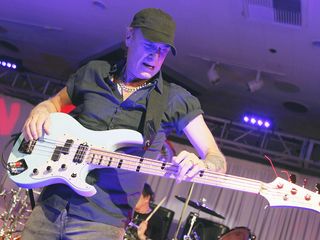
Billy Sheehan: my top 5 not-so-guilty pleasures of all time
It might come as a surprise to many to learn that when Billy Sheehan, one of the world's foremost bassists, kicks back, the last thing he wants to listen to is the music of fellow bass virtuosos. "From legends like Stanley Clarke to newer guys like Victor Wooten, I've heard them all, and they're all great," says Sheehan. "But when I'm home or on a tour bus, I'd rather listen to garage bands from the '60s or something else that's way-out. It's important to take yourself away from what's close to you."
Growing up in Buffalo, New York, in the '60s and early '70s, Sheehan devoured the big band records from his mother's collection, and he was also a huge AM radio fan. "I heard everything on the dial," he says. "Radio played such a variety of styles, and it made you very uninhibited in what you liked. Nobody was ever afraid to say, ‘Hey, I got the new Carole King record.’ There wasn't the balkanization of music that we have today."
Sheehan's eclectic tastes expanded in the mid-'70s when he roomed with a Buffalo-based painter named Ted Gasceiwicz. A realist on the canvas, Gasceiwicz was quite fanciful in the music he favored. "He was a great finder of the obscure," says Sheehan. "He turned me on to people like Alberto Ginastera, a Spanish pianist with the most incredible approach to pounding on the keyboards. He’d play me records that I never heard of before, but it was great because they’d be in my vocabulary after that. You need people like Ted in your life."
It was also in Buffalo where Sheehan encountered what he remembers as being the first forceful resistance to music that he loved. The bassist had arrived at an area club for a soundcheck and was eager to test out his cassette player through the PA system. "I just wanted to hear what it sounded like, 'cause it was new at the time," says Sheehan. “The tape in the player was Beethoven’s Ninth Symphony. I put it on, and one of the bartenders started yelling and screaming at me, really going crazy. The idea of me playing classical music in a rock club was a total affront to his sensibilities. That surprised me, especially since I thought the Ninth Symphony was so heavy and awesome."
Today, Sheehan finds that not limiting the choices on his "digital dungeon," i.e. his iPod, pays off enormously in his own work. "I remember playing a big gig in front of a rock audience," he says, "and I went into some oddball stuff on the bass that was based on Bach. Afterwards, people came up to me – ‘Wow, how did you come up with that? What was that thing you were doing?’ They didn’t know it was hundreds of years old."
On the following pages, Sheehan runs down his not-so-guilty pleasures, five incredibly dissimilar albums that are all common in one regard: not one of them features a blazing bass-note run. "Keep your mind and your ears open, and like what you like," says Sheehan. "Take a left turn in your listening habits. It'll pay off somewhere down the road."
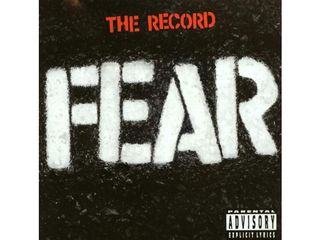
Fear - The Record (1982)
“I had just gotten to LA, and I read some things about Fear being the ultimate punk band. I had to check them out, and when I did, I instantly fell I love with them. To this day, The Record is one of my favorite albums, and it has one of my favorite songs called Let’s Have A War. Lee Ving is the lead singer of the band, and I absolutely adore his voice.
“Sonically, this sounds amateur and low-budget, but it doesn’t matter; it's perfect in its own way and for the kind of band Fear is. They do some odd-time changes that some people might not expect, just like The Ramones did, which I thought was a funny, tongue-in-cheek thing for them to do.
“This is such a killer record. In fact, the opening of the song Beef Bologna was what I used on my answering machine for years, so much so that Gregg Bisonnette ended up getting the nickname “Low Down Skank-a-Doo,” which is what Lee Ving sings in it.”
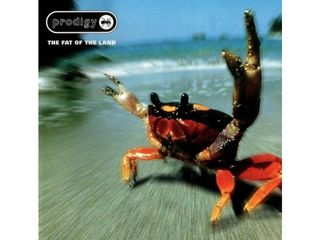
The Prodigy - Fat Of The Land (1997)
“Smack My Bitch Up and Breathe are great, great tracks. Everything on the album is terrific. I was an early convert to all things electronic, from Tomita and Mike Hankinson – he’s got a brilliant record called The Unusual Classical Synthesizer – to these guys. I’ve been way into synthesizers for a while now.
“When I heard this record for the first time, I thought, ‘Wow, these guys are really mixing it up and taking things in a new direction.’ I loved the cut-and-paste and the sampling; it’s so different from what I do. They're exciting. Again, it’s about taking a left turn. Influences can be subtle sometimes – they can even be simply an attitude.”
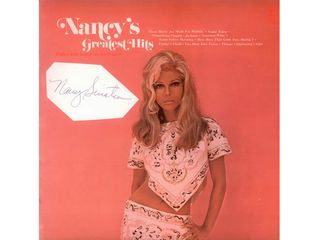
Nancy Sintra - Nancy's Greatest Hits (1970)
“I love all of her stuff, but one of my all-time favorite songs of Nancy’s is One Velvet Morning, which she did with Lee Hazelwood. It’s just gorgeous in a very strange way.
“Nancy wasn’t the greatest singer in the world, and of course, she was in the shadow of arguably one of the greatest singer of all time, and one of my personal favorites. I mean, you’ve got The Beatles and Sinatra as my top two enjoyments in life. So yeah, Nancy was in an interesting spot because she was the daughter of ‘that guy.’
“But she decided to go somewhere new with it, and she hooked up with a guy like Lee Hazelwood, who, like Johnny Cash, what he did had more to do with his depth of character and style rather than actual singing technique. It was all about the moment where they were at, and they sang what they felt. I thought One Velvet Morning was a daring choice for Nancy, very authentic and quite bold.”
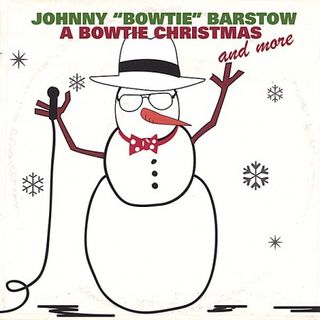
Johnny "Bowtie" Barstow - A Bowtie Christmas And More (2004)
“He’s probably the worst singer of all time, and I just love him. He’s so bad that he either frightens people or blows their mind – or both. He’s not even remotely on key – he’s a catastrophe! – and his timing is so bad that it’s an abomination. But all that said, and maybe it’s because of how awful he is, he never fails to bring the house down.
“It’s amazing that to me that he’s made records and that he had an engineer sitting in a room with him going, ‘OK, that’s a take! We’re good in here.’ [Laughs] And what were the bad takes like, the ones that didn’t make the record? That’s pretty scary to think about.”

Dead Can Dance - Toward The Within (1994)
“Dead Can Dance do a pretty fascinating blend of Celtic meets Middle Eastern music. They’ve got a giant folder of great records. I really like one of their most recent albums, Spiritchaser, but they have another one called Toward The Within that’s even better. It’s a live record, and it’s hypnotic and quite entertaining.
“I was in Tower Records on Sunset, which isn’t there anymore, and I heard a song of theirs called I Am Stretched On Your Grace, that I thought was very powerful. I checked out Toward The Within, and I just fell in love with it. It’s one of those records that is just so real and live and just... perfect. Whenever people want to hear something cool that they’ve never heard before, I play them Dead Can Dance and blow their minds.
“Spiritchaser is their more accessible record, but I think the purists go back to something like Toward The Within. I like listening to Dead Can Dance on Friday nights after everything is done and we’re going to cook and hang out. I have a new system in my house, and I’ll click them on and have them as my evening music, right alongside Count Basie and Humble Pie.”

Joe is a freelance journalist who has, over the past few decades, interviewed hundreds of guitarists for Guitar World, Guitar Player, MusicRadar and Classic Rock. He is also a former editor of Guitar World, contributing writer for Guitar Aficionado and VP of A&R for Island Records. He’s an enthusiastic guitarist, but he’s nowhere near the likes of the people he interviews. Surprisingly, his skills are more suited to the drums. If you need a drummer for your Beatles tribute band, look him up.

“If it wasn’t for that song, that would have been the end of the band”: How one track’s sudden gear-switch led Coldplay into their imperial phase

“He was like, ‘You’ve got it all wrong, man": Mumford & Sons reveal what Neil Young told them about the way they were approaching their live shows and album recordings

“If it wasn’t for that song, that would have been the end of the band”: How one track’s sudden gear-switch led Coldplay into their imperial phase

“He was like, ‘You’ve got it all wrong, man": Mumford & Sons reveal what Neil Young told them about the way they were approaching their live shows and album recordings








